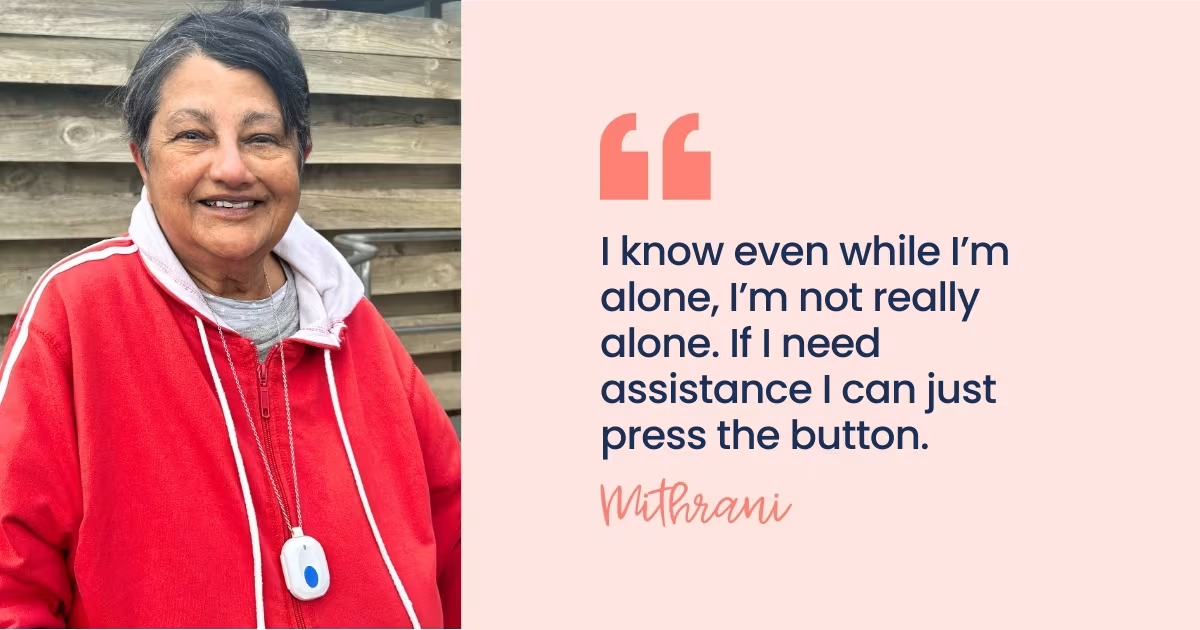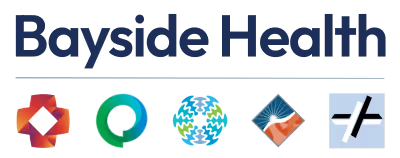Staying Independent with Dementia and Parkinson

For our lovely client Mithrani, safety isn’t just about emergencies—it’s about living life on her own terms. As a dementia advocate and cancer survivor, she’s deeply involved in research, community work and creative expression. And through it all, MePACS has been her trusted companion.
“I feel very safe and secure when I’m by myself at home, or even travelling by taxi,” Mithrani shares. “Wearing the alarm around my neck makes me feel protected. If I feel unwell, I just press the button.”
Independence with Confidence
Diagnosed with Lewy body dementia, Parkinson’s disease and PTSD anxiety, Mithrani knows how quickly things can change. “Sometimes I lose my balance. It wasn’t serious, but it made me realise I need the alarm close, always. If it’s on the table and I can’t reach it, that’s a risk I don’t want to take.”
She uses both the MePACS home and mobile alarms, giving her peace of mind wherever she goes. “If I’m out and everyone’s busy, I know I can press the help button and get assistance. I haven’t had to use it yet, but just knowing it’s there means I don’t need someone with me all the time. I can be independent.”
Whether she’s at a café enjoying rock and roll music, painting at the Pride Centre, or attending medical appointments alone, MePACS helps her stay connected to help, without relying too much on other people. “My daughter suggested I get the alarm. If I don’t wear it, I get reprimanded,” she laughs. “She doesn’t want to worry while she’s at work.”
Advocacy Rooted in Experience
Mithrani believes MePACS should be offered more widely, especially to people newly diagnosed with dementia. “Some can still go for walks. If they fall, the pendant is easier to reach than a phone. It’s a safety net.”
Her advocacy extends beyond personal experience. As a member of the Frankston Council’s Disability and Inclusion Group and a passionate contributor to dementia research, she’s pushing for change. “I’d like to see hospitals recommend MePACS when someone is diagnosed. It’s a good link for everyone.”
Despite living with multiple health conditions, Mithrani remains hopeful and active. “I’ve been on a cancer journey since 2001. I refused my third surgery because of the risks with dementia and anaesthesia. But I still do research, I still contribute. MePACS helps me feel safe enough to keep going.”
A Lifeline That Matters
So how would she describe MePACS in a word?
"The first letters in MePACS – Me,” she says. “It makes me feel safe and secure. It’s close to me, easy to reach, and I know someone will answer.”
For Mithrani, MePACS isn’t just a device—it’s a lifeline. And she’s determined to make sure others have access to that same sense of safety, dignity, and independence.

.jpg)
.jpg)
.jpg)
